This year marks the 25th anniversary of the Higher School of Economics (HSE) – the university I was affiliated with in 2000-2017, first as a student, then as a faculty member. This is a nice occasion to share some thoughts on this here because I believe this matters for the history of economics at least in two respects – 1) as a fragment in the (still largely unwritten) history of recent economics in Russia and beyond; and 2) as a view on the development of our discipline as such.
One always needs some temporal distance to judge about one’s own involvement in history – however small and insignificant (like mine) it might be. I am writing this because I feel I was given this time and I have a personal perspective to be added to the general historical narrative.
—————-
When I entered the HSE, economics was for me, as well as for most of my fellow-students first and foremost what in German is succinctly called Brotstudium – a discipline that would be associated with something tangible, with the real occupation (unlike, say, philosophy which, as many people around me believed, was not a real ‘profession’). I was very suspicious and at first neglected most of the economics and other disciplines taught to us as simply dull and irrelevant to my ‘higher’ intellectual concerns. At the same time, I regarded my interest in humanities as a guilt, something to be ashamed of in front of my economics peers, perhaps similar to religious beliefs in the age of hard science. But I was wrong in many ways, and it is this feeling of having erred that motivated me to write this recollection.
Apart from those of my course-mates who simply needed a prestigious economics diploma in order to find a good job in industry or government, there were, of course, others who were really interested in economics and occasionally also wanted to become academics. Some of them, as I see now, did embark upon a career of an academic economist[1]. But I did not want to follow this path, I was too critical and too impatient with ‘positivist’ and pragmatic flavor of our curriculum – which was, as I now understand, extremely demanding and included the whole spectrum of applied disciplines (like corporate finance or banking, but, in fact, many more), lots of math and econometrics, several big courses in micro and macro, and many other compulsory courses (in fact, most of the courses were compulsory, this was an atavism of the Soviet educational system) – all packed into 3,5 years of training. But there was still more, and it is this ‘more’ I retrospectively see very differently.
—————-
In the very beginning of the first academic year, the rector of the HSE, Yaroslav Kuzminov, taught us (who were at that time almost all not older than 17) a 2-months introductory course called, enigmatically, [2] ‘Economic institutions’. The starting point was the perceived deficiency of ‘neoclassical’ approach and the need for a more realistic study of economic institutions, very much along the lines of Douglass North’s famous 1990 book. It also took Herbert Simon’s idea of bounded rationality on board. Admittedly, the 2 months course did not bring us much further than clarifying the basic definitions (like the differences between institutions and organizations or the types of transaction costs), and how could it possibly be otherwise? But it did convey at least two important messages: 1. Institutions matter, and standard economics does not pay enough attention to that; 2. Neo-institutionalism, in the versions of both North and Williamson (their work, along with that of Simon, had been by then already translated into Russian), is important to understand what is happening in the Russian economy – and, generally, for making sense of a radical institutional transformation we were witnessing.
Now I understand how special it was. Apart from institutional economics (which we also had in a more advanced form later), we began our studies with a more-than-a-semester course in economic history, which was, however, more descriptive and more inspired by Wallerstein than by North; and in the third year, we had a course in the history of economic thought. This organization of curriculum reflected the way HSE conceived of training its ‘core’ students (at that time, there were few departments). I would reconstruct this implicit understanding roughly like this:
- you have to be relevant for your country’s economic development (back in 2000, it was still the priority);
- economic policies designed in the beginning of the 1990s, following the ‘existential’ constraints of transition and simple commandments of the Washington consensus, mostly disregarded deeper institutional and cultural dimension of the Russian economy that is currently in desperate need of ‘good’ institutions;
- in economics community, there is an increasingly widespread perception that purely market-based, ‘neoclassical’ (or ‘neo-liberal’ – whatever this means, and may all the gods of intellectual history forgive me!) policies are insufficient both on theoretical and on pragmatic terms;
- thus, we have to make recourse to the best alternative available – not replacing, but complementing the standard economics curriculum; and we have to do it on many levels, in order to make it clear that history and culture matter even for those who, like our economics students, are to be educated mostly ‘technically’ and/or in a very ‘business-oriented’, possibly a-theoretical way.
It took some time for me to recognize behind the diversity of courses the general idea of a) making economics education more open to other disciplines; b) making future economists more sensitive to history; and c) teaching economics (also) as a social/human science. (The last point was, admittedly, only possible at a graduate level and, as far as I know, remained for the most part a mere intention.) Moreover, by the time I myself started teaching at the HSE Kuzminov had convinced the economics department that it should dedicate still more hours to the history of economic thought, so that its share in the curriculum became enormous and comprised nearly 3 semesters (it was subsequently shortened again, but the very approach is telling).
I gradually realized that people who were the founding fathers of the HSE came from the intellectual tradition(s), that valued pluralism in economics, and could see how history and interdisciplinarity matter for economic knowledge. Kuzminov himself began his career at Moscow State University as a lecturer in the history of economic thought and economic history, who then became interested in institutionalism, property rights theory etc. Oleg Ananyin, my supervisor[3], was – and is – a professional economic methodologist and historian of economics. Vladimir Avtonomov, who was for a long time Dean of the economics department, is an historian of economics as well. Vadim Radaev, the Vice-Rector of HSE, who established new economic sociology in Russia; Natalia Makasheva, a scholar working on Keynes and Nikolai Kondratiev; Revold Entov and Rostislav Kapeliushnikov, who worked in applied economics, but considered their broad and productive engagement with the history of economic thought and methodology equally important[4]; the late Andrei Poletayev, an economist-turned-historian, who, with Irina Savelieva, created the first HSE research institute devoted solely to the human sciences; others, like Rustem Nureev, Georgii Gloveli and Leonid Grebnev, who were very sensitive to the philosophy and history of economics – all these individuals played a significant role in shaping the first curricula and generally determining the path of the HSE as an institution. Many of them contributed to a series of books (actually it should have been an annual publication) called Istoki (Origins), publishing lots of translations and original work in economic history, institutional economics, and history of economic thought; translated Schumpeter and Blaug; and co-authored the first comprehensive history of economic thought textbook in Russia. Hence, it should not be surprising that some important faculty from the younger generation, like Maria Yudkevich [5] or Alexis Belianin [6], were equally open-minded; it is also not surprising that one of the key international academics invited to cooperate with the HSE was John Nye, a well-known associate and colleague of North.
But I somehow had not understood these deeper intellectual commitments of the university till the times of my MA, when I found myself following Ananyin’s course in the philosophy of economics and discovering how fascinating economic theory was as an object of historical and methodological analysis, and how helpful my training in economics turned out to be in my philosophical work. So, after all, despite some disappointment with more standard parts of the curriculum, I still could discover opportunities – and find support – to do very inspiring things at the economics department. There was nothing to be ashamed of, there were just things one had to do well, with insight and passion.
—————-
What is the lesson? There is no lesson here, just, perhaps, some final historical remarks. I wonder where did this academic/epistemic culture of interdisciplinary openness and, in particular, respect to the history of economics (still not typical for most economics departments) come from. And I see at least three historical reasons for this.
- In part, this culture was inherited from the Soviet past, when Marx and Marxism were key subjects of study and neither economic history nor history of economic thought could possibly be overlooked (after all, Marx himself was an historian of economic ideas!). In 1990s, unlike most other post-Soviet economists, HSE faculty took pains to engage with whatever type of ‘Western’ economics they found productive. The curricula were being reformed and renewed every year, they were quickly becoming very ‘standard,’ but those good scholars who had a background in Marx, could not be satisfied with the standard theoretical frame (and could not, of course, suddenly become mainstream economists).
- As I said before, this clearly had a certain pragmatic background. HSE curriculum reflected the dominant ideas about what a good economist must know, and ‘good economist’ mostly referred to a good expert in economic policy, whether industrial, ‘institutional’ or macroeconomic. Now, one did believe that applied disciplines and standard economics courses were not enough, one needed some other ways of conceptualizing the economy, and that is why institutional economics and economic sociology were present in our curriculum as well.
- Finally, those beliefs were, I presume, also of a more general kind. History of economic thought mattered for a good education in economics precisely because it demonstrated that – surprise – there was no single economic theory out there and that one could look at economic science from a completely different perspective. That is not so easy to comprehend if you’ve got a background, say, in physics, then become an MA in economics and move on to a PhD without ever taking or caring to take such courses and being sure that there is a straight line from the most recent textbooks to papers to the ‘cutting edge’ science. HSE believed that this is too narrow a vision, to be broadened by the historical engagement with economies and with economic knowledge.
Were these three reasons connected to each other? Of course they were, but I stop here and leave the rest to another occasion.
[1] See, e.g., here and here. However, at that time this career almost necessarily involved getting a MA at the New Economic School, the most famous example being MIT’s Andrey Malenko, by far the most successful academic economist among the HSE alumni, who studied a year later than me.
[2] The funny thing is that institut in Russian often refers to something like a college, so the course title (Ekonomicheskiye instituty) could remind us of all those ‘higher education institutions’, commercial or not, offering (mostly bad) economic training.
[3] I did not know at that time about the role Ananyin had played in Russian reforms, for he was among those few who in the early 1980s discussed the ways of radical economic transformation.
[4] Entov edited most of the translations of Western economists published in the Soviet Union, while Kapeliushnikov wrote, among other things, the first exposition of the ‘Western’ property rights economics back in 1990.
[5] Who studied institutional economics with Kuzminov in Moscow and with Olivier Favereau, Laurent Thévenot, and Claude Ménard in Paris.
[6] The student of Poletayev who, as far as I understand, supported the idea that the history of economics be taught at the ICEF – the LSE-affiliated department of the HSE where I was also teaching. I do not know the whole story, but the history of economics seems to be taught only at the LSE department of economic history, and not at the department of economics, with which ICEF was initially associated.

 The 11th History of Recent Economics conference (
The 11th History of Recent Economics conference (
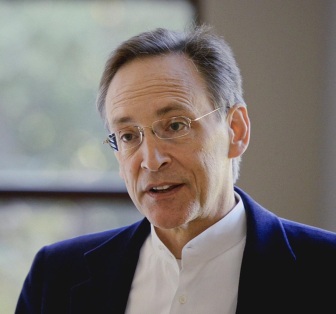


 Cowen and Tabarrok’s suggestions are predicated on the impressive record of the Defense Advanced Research Projects Agency in promoting groundbreaking research, from hypersonic planes, driverless cars and the GPS to ARPANET and onion routing. This success is usually attributed to the philosophy and structure of the secretive defense institution founded in 1958 to “prevent technological surprise like the launch of Sputnik,” and later to “create technological surprise for US enemies.” Michael Belfiore, for instance, has described a
Cowen and Tabarrok’s suggestions are predicated on the impressive record of the Defense Advanced Research Projects Agency in promoting groundbreaking research, from hypersonic planes, driverless cars and the GPS to ARPANET and onion routing. This success is usually attributed to the philosophy and structure of the secretive defense institution founded in 1958 to “prevent technological surprise like the launch of Sputnik,” and later to “create technological surprise for US enemies.” Michael Belfiore, for instance, has described a 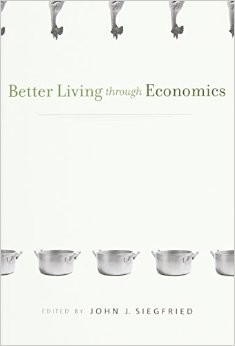 Sounds familiar? The ubiquity of Al Roth’s research on kidney matching in economists’ media statements, the proliferation of books such as
Sounds familiar? The ubiquity of Al Roth’s research on kidney matching in economists’ media statements, the proliferation of books such as  History of Recent Economics Conference University of Lucerne – April, 21-22 2017
History of Recent Economics Conference University of Lucerne – April, 21-22 2017
 At the latest
At the latest  t still, at the very least, mistaken. For at least one part of the argument is true: economists, on the whole, are not interested in the history of their field and are not likely to be interested in it anytime soon. A bibliographic research I have undertaken over the past few years with my friend and fellow Pedro Duarte – forthcoming in the
t still, at the very least, mistaken. For at least one part of the argument is true: economists, on the whole, are not interested in the history of their field and are not likely to be interested in it anytime soon. A bibliographic research I have undertaken over the past few years with my friend and fellow Pedro Duarte – forthcoming in the 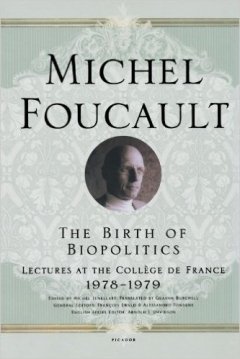 On the other hand, sociologists, historians, political scientists, and even management scholars are increasingly drawn to the history of recent economics. They do so because they feel that economics is an important part of today’s social, political and cultural environment and they want to understand it. Of course, there’s nothing new about this. Another friend and colleague of mine, Loïc Charles, has done work on 18th century economics with practicing historians, showing how economic thinking was intertwined with a lot of things happening at the time: international trade (including, most notoriously, slave trade), the colonization of the Americas, the French revolution, etc. But what is specific to the recent – postwar – period, is that economic thinking is not just mixed with other types of knowledge and practices, but increasingly, is THE knowledge which is used as a way to ground, to legitimize all knowledge and practices. This recent move toward the economization of every aspect of our society is what researchers have come to designate as “neoliberalism”, and this is the one of the main concepts that makes the study of postwar economics a possibly interdisciplinary venture, one that has a lot of chance to attract readers and create scholarship.
On the other hand, sociologists, historians, political scientists, and even management scholars are increasingly drawn to the history of recent economics. They do so because they feel that economics is an important part of today’s social, political and cultural environment and they want to understand it. Of course, there’s nothing new about this. Another friend and colleague of mine, Loïc Charles, has done work on 18th century economics with practicing historians, showing how economic thinking was intertwined with a lot of things happening at the time: international trade (including, most notoriously, slave trade), the colonization of the Americas, the French revolution, etc. But what is specific to the recent – postwar – period, is that economic thinking is not just mixed with other types of knowledge and practices, but increasingly, is THE knowledge which is used as a way to ground, to legitimize all knowledge and practices. This recent move toward the economization of every aspect of our society is what researchers have come to designate as “neoliberalism”, and this is the one of the main concepts that makes the study of postwar economics a possibly interdisciplinary venture, one that has a lot of chance to attract readers and create scholarship. So, is it convincing? Well, let’s take for instance Béatrice’s
So, is it convincing? Well, let’s take for instance Béatrice’s 
 As a growth economist, Romer has earned fame by
As a growth economist, Romer has earned fame by 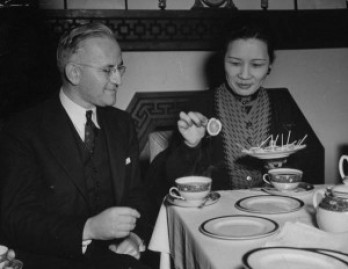



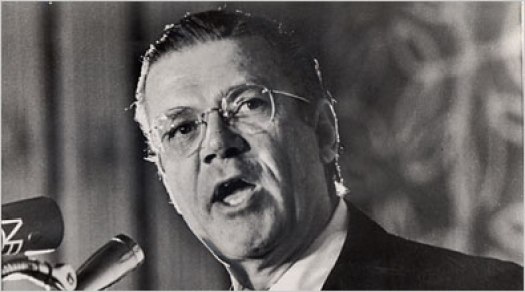






 Nine years after, we’re hopefully still good-looking and enthusiastic, yet also swamped with deadlines. Some of us are writing habilitation theses, others are finishing a book, revising some articles, preparing talks and lectures or applying for grants. This summer, we will be reading the same books and papers, and our topics will often intersect. We will research various protagonists embedded in similar contexts, yet we will disagree a good deal about what shaped economics as we know it today. We are therefore reopening our old playground for a couple of months, turning it into a summer bootcamp for historians with deadlines.
Nine years after, we’re hopefully still good-looking and enthusiastic, yet also swamped with deadlines. Some of us are writing habilitation theses, others are finishing a book, revising some articles, preparing talks and lectures or applying for grants. This summer, we will be reading the same books and papers, and our topics will often intersect. We will research various protagonists embedded in similar contexts, yet we will disagree a good deal about what shaped economics as we know it today. We are therefore reopening our old playground for a couple of months, turning it into a summer bootcamp for historians with deadlines.